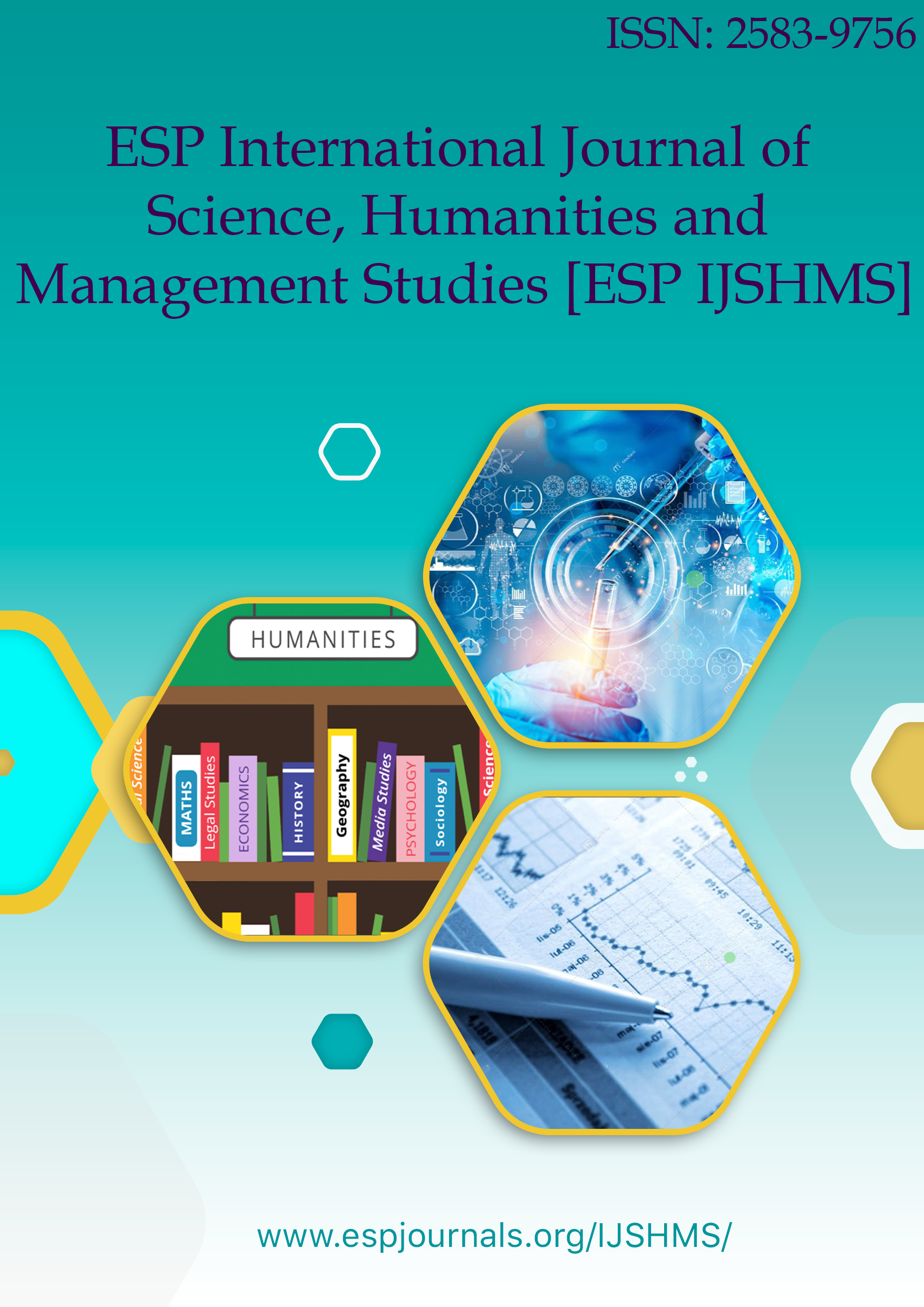ESP International Journal of Science, Humanities & Management Studies(ESP-IJSHMS)
Citation :
Dr. M.S. Girish Rathod, Pallavi Ashokrao Charate, 2025. "Gamification in Libraries: Strategies for User Engagement and Skill Development" ESP International Journal of Science, Humanities & Management Studies(ESP-IJSHMS) Volume 3, Issue 1: 24-34.
Abstract :
Gamification—applying game design thinking to non-game contexts—has been a rising phenomenon in library environments aiming to enhance user involvement and facilitate skill acquisition. This comprehensive review explores the theoretical foundations, implementation methods, and real-world applications of gamification across various library environments. By drawing on well-established psychological theories, including Self-Determination Theory and Flow Theory, the research assesses the extent to which game mechanisms such as points, badges, challenges, and storytelling can construct significant engagement experiences. Through case study examination of academic, public, and school libraries globally, the research outlines successful strategies to implement gamification for information literacy, digital literacy, and lifelong learning. While acknowledging the challenges to implementation, such as constraints in resources, digital divide-related issues, and the risk of over-gamification, this paper provides evidence-informed recommendations for library practitioners. As libraries move from the role of storage facilities to dynamic spaces of learning, gamification is a powerful strategy for meeting diverse, digitally-literate users' needs and advancing the library core mission of education and community engagement.
References :
[1] Capdarest-Arest, N., Opuda, E., & Stark, R. K. (2019). "Game on!" Teaching gamification principles for library instruction to health sciences information professionals using interactive, low-tech games. Journal of the Medical Library Association, 107(4), 566-571.
[2] Csikszentmihalyi, M. (1990). Flow: The psychology of optimal experience. Harper & Row.
[3] Deterding, S., Dixon, D., Khaled, R., & Nacke, L. (2011). From game design elements to gamefulness: Defining "gamification". In Proceedings of the 15th International Academic MindTrek Conference (pp. 9-15). ACM.
[4] Johnson, L., Adams, S., & Cummins, M. (2011). The NMC Horizon Report: 2011 Museum Edition. The New Media Consortium.
[5] Kaneko, K., Saito, Y., Nohara, Y., Kudo, E., & Yamada, M. (2018). Does gamification work for user library education? An experimental study of the learning outcomes and user experiences in a digital learning environment. International Journal of Learning, Teaching and Educational Research, 17(10), 44-62.
[6] Kolb, D. A. (1984). Experiential learning: Experience as the source of learning and development. Prentice-Hall.
[7] Krath, J., Schürmann, L., & von Korflesch, H. F. (2018). Revealing the theoretical basis of gamification: A systematic review and analysis of theory in research on gamification, serious games and game-based learning. Computers in Human Behavior, 87, 220-235.
[8] Lave, J., & Wenger, E. (1991). Situated learning: Legitimate peripheral participation. Cambridge University Press.
[9] Markey, K., Leeder, C., & St. Jean, B. (2010). Students' behaviour playing an online information literacy game. Journal of Information Literacy, 5(2), 46-65.
[10] Mekler, E. D., Brühlmann, F., Tuch, A. N., & Opwis, K. (2017). Towards understanding the effects of individual gamification elements on intrinsic motivation and performance. Computers in Human Behavior, 71, 525-534.
[11] Nicholson, S. (2015). A recipe for meaningful gamification. In Reiners, T., & Wood, L. C. (Eds.), Gamification in education and business (pp. 1-20). Springer.
[12] Panopoulou-Huovila, D. (2020). Gamification promotes skill development and active learning for enhanced user experience in information retrieval training. Journal of Information Science Theory and Practice, 8(1), 32-44.
[13] Ryan, R. M., & Deci, E. L. (2000). Self-determination theory and the facilitation of intrinsic motivation, social development, and well-being. American Psychologist, 55(1), 68-78.
[14] Skinner, B. F. (1953). Science and human behaviour. Simon and Schuster.
[15] Tan, M., & Wu, F. (2020). Digital storytelling and gamification: Enhancing engagement with cultural heritage collections in Singapore. International Journal of Information Management, 53, 102307.
[16] Walsh, A. (2014). The potential for using gamification in academic libraries in order to increase student engagement and achievement. Nordic Journal of Information Literacy in Higher Education, 6(1), 39-51.
[17] Harish, C.K. & Rathod, M.S.G. (2025) The Role of Information Literacy in Enhancing Faculty Research Productivity: A Case Study of Mangalore University-Affiliated Colleges. International Journal of Research in Library Science (IJRLS), 11(2) 59-64. www.ijrls.in
Keywords :
Gamification, Libraries, User Engagement, Information Literacy, Game-Based Learning, Digital Skills, Educational Technology.


 : 10.56472/25849756/IJSHMS-V3I1P104
: 10.56472/25849756/IJSHMS-V3I1P104